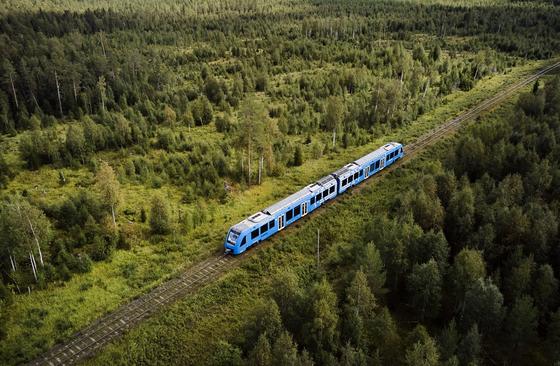
Alstom Foundation and Instituto Jô Clemente (IJC) launch project that uses Virtual Reality to promote mobility and social inclusion of people with disabilities
Alstom Foundation and Instituto Jô Clemente (IJC) launch project that uses Virtual Reality to promote mobility and social inclusion of people with disabilities

Communication Coordinator - Latin America
Vinicius Riqueto
Send an email-
Project seeks to overcome challenges of urban mobility and discrimination faced by people with disabilities.
-
Use of Virtual Reality (VR) simulates public transport scenarios and accessible public spaces.
-
Training includes visual instructions and communication tools to facilitate interactions
May 6, 2024 - The Alstom Foundation, in partnership with the Instituto Jô Clemente (IJC), announces the launch of the "Virtual Reality for Inclusion" project, an initiative that will use virtual reality to simulate real world environments to help people with disabilities, including those with Intellectual Disabilities, Rare Diseases and Autism Spectrum Disorder (ASD) develop skills to navigate a world that isn’t always designed for them.
The initiative aims to prepare people with disabilities to overcome physical accessibility obstacles and understand basic safety for walking and using public transit in urban areas. The project uses Virtual Reality (VR) to create simulated scenarios, and help participants practice navigating environments that may be challenging to them, in order to increase resilience and self-confidence.
“Access to mobility is one of the four axes of work addressed by the Alstom Foundation. Supporting this project is a source of pride, as in addition to meeting this purpose, it is also aligned with one of Alstom’s values, which is inclusion."
The project is being developed with technical support from the Interdisciplinary Center for Interactive Technologies at the University of São Paulo (LSI-Tec-USP). The room prepared to receive the technology is being installed at the Jô Clemente Institute headquarter, located in the Vila Clementino neighborhood in São Paulo, and the place will be used to complement the classes and activities carried out with students enrolled at the institution.
Participants will have the opportunity to practice and consequently gain more confidence on public transport routes, through a variety of simulated scenarios. This includes from becoming familiar with different train routes to practicing boarding and alighting this vehicle. To complement mobility training, the project offers visual instructions that, combined with visual and auditory communication tools, facilitate participants' interaction and understanding of the content.
“Access to mobility is one of the four axes of work addressed by the Alstom Foundation. Supporting this project is a source of pride, as in addition to meeting this purpose, it is also aligned with one of Alstom’s values, which is inclusion”, says Anne-Cecile Barbier, CSR Director & Alstom Foundation General Secretary.
According to estimates by the World Health Organization (WHO), there are 70 million people with autism in the world, and in Brazil, it is believed that 2 million people have some degree of the disorder. Furthermore, the Ministry of Health indicates that approximately 13 million Brazilians live with rare diseases. Additionally, more than 2.6 million Brazilians - around 1.4% of the country's population - declared to have a mental or intellectual disability. These conditions have a significant social impact, highlighting the importance of initiatives that aim to include and support these individuals in society.
“The project enhances safety by allowing people with Intellectual Disability and Autism to familiarize themselves with complex urban environments in a controlled, virtual setting. The main goal is to encourage people who we attend through Professional Inclusion service. This is going to prepare 900 people for real world and empower them, so that they feel comfortable and can navigate the city”, says Daniela Mendes, Chief Executive Officer at Instituto Jô Clemente (IJC).

